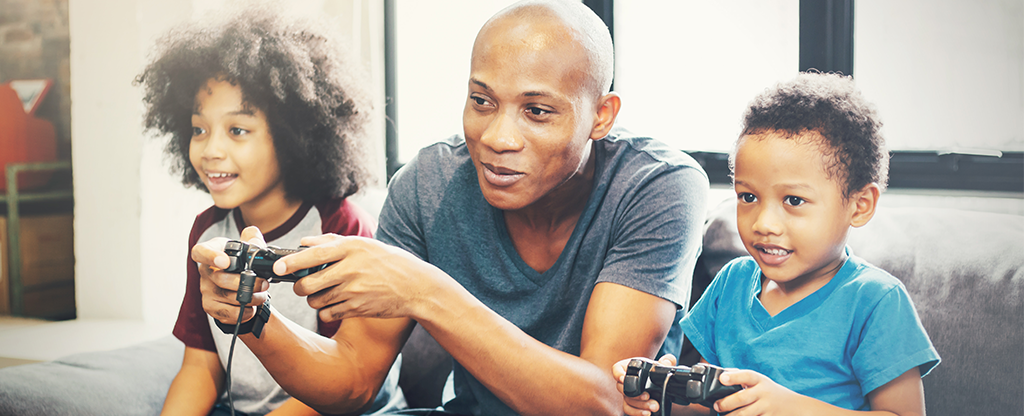
If you’re a parent of a school-aged child, especially a teenager, then you’ve almost certainly had to deal with the issue gaming; and more specifically, spending too much time playing video games.
Further, if you’re a parent who’s tried to manage this challenge then you’ve almost certainly had to deal with the frustrations and failures that are part of entering this treacherous territory.
But today I bring you some good news; just like some of the other complex aspects of parenting there are effective ways to navigate the minefield that is the negotiating surrounding “how much is enough” as well as the other debates that surround gaming.
To begin with, know you’re not alone! In one study, 95% of parents admitted to being worried about the risks associated with online gaming and the amount of time their children spend playing. Just ask the parents of other children at your child’s school and you’ll find that the majority share similar worries to you.
At the same time, know that this provides you with an opportunity to be the sort of parent you want to be; which for most of us is a “positive parent”. Positive parenting is focused on developing a strong and positive relationship between parents and children; whilst also helping children develop appropriate and important skills such as self-control, decision making and effective communication.
In addition, positive parenting is very much solution focused and collaborative; which means both parents and the child should be involved, with everyone striving very much to find common goals and constructive strategies that will help achieve these desired outcomes. Ultimately, all being well, everyone involved should be pleased with the plan.
More specifically, give some consideration to the following:
- Whether you like gaming or not is almost irrelevant. The reality is it’s almost certainly fun for your child, and an important topic of conversation between him/her and his/her friends. It is, therefore, a significant component of building relationships especially at certain ages
- Decide which battles are really worth fighting; some are, and some related to this issue are, but if arguments are occurring very frequently then it might be worth reviewing priorities and perspective
- Remember that self-control and self-regulation are skills children are still learning (in fact many adults still struggle with this too!). As such, have realistic expectations of your kids. They won’t get it right every time; and that shouldn’t be a major problem. Rather, each “failure” should be viewed as another teaching opportunity. Help them set or use timers and reminders; help them realistically estimate how long it takes to finish up; help them learn how to communicate assertively with others if they’re playing with friends; and help them develop a wind down routine for when they finish if necessary
- Keep an eye out for warning signs. Try not to see gaming as bad, in and of itself. As noted, whether you like it or not it’s probably an important and fun part of your child’s life. In moderation, therefore, it should not be seen as problematic. At the same time, however, it can become problematic if it’s taking up too much time and interfering, therefore, with other important activities. If, for example, you’re concerned that your child is not spending enough time doing homework, exercising or being active, socialising and interacting (in the “real world”) with friends and family, then it might be time to take more serious action. Further, if you’re becoming seriously concerned about your child’s mood (e.g. depression, anger or anxiety) then similarly, action should be taken sooner rather than later. And this might involve talking to your child about your concerns and reviewing the current rules and agreements; or if this is not working then seeing a professional (e.g. a clinical psychologist) should definitely be considered.
In conclusion, most families will be able to work through challenging situations such as those discussed within this article and for most children, excessive gaming will be a phase that will have an ending. Accordingly, try as best you can to keep as calm and positive as possible through this stage but if necessary, don’t be afraid to reach out and ask for help.